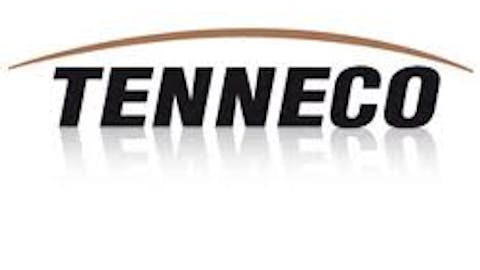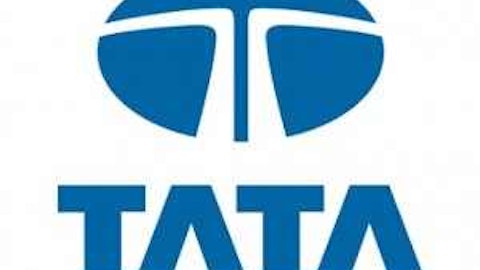Just in case you didn’t like my Japanese car-makers list in a previous post, here are some other overseas companies that offer compelling growth prospects as they stand to benefit from the increasing vehicle demand in emerging markets at great valuations. These are Volkswagen, from Germany; Fiat , from Italy; and Tata Motors Limited (ADR) (NYSE:TTM), from India. Let´s take a closer look.
In Germany: Volkswagen
Volkswagen is a globally recognized German automaker. As the largest in Europe, it holds twelve brands: Volkswagen, Audi, Porsche, SEAT, Skoda, Bentley, Bugatti, Lamborghini, Ducati, VW Commercial Vehicles, Scania, and MAN. As you might figure, brand strength is not an issue for this company.
Many analysts and investors seem to have overlooked this firm, which actually offers a great opportunity for value-oriented shareholders. Trading at only 3 times its earnings, about an 80% discount to the industry average, while paying out bulky dividends and offering compelling growth prospects, I’d recommend buying and holding its shares.
Vastly diversified, both product-wise and geographically, Volkswagen can cater to the needs of almost any customer, thus reducing its dependence on one product or market. This has provided the firm with greater stability than most of its peers and has allowed it to achieve outstanding financial results. Net income has grown 182% per year over the last three years, while returns and margins came in well above industry averages, much closer to those retrieved by premium brands than to those of mass-market car makers.
Even despite the falling demand in Europe, the company seems poised to grow over the next few years, mainly on the back of the Brazilian, Chinese, Indian, Russian markets, along with other emerging economies. A particular dominance in China provides massive opportunities for further development. The economic recovery in Europe will also play a very relevant role in the firm’s growth over the years ahead; same can be said about innovation, operational scale, and the rollout of a manufacturing system that supports substantial cost reductions.
Volkswagen´s financial business is not to be overlooked since it “enables management to set credit policies so that dealers have funding to stock inventory and so consumers can obtain financing,” (Morningstar) while still a profitable segment.
In Italy: Fiat
Fiat is another huge European automaker. Based in Italy, it produces cars under the Fiat, Lancia, Autobianchi, Alfa Romeo, Innocenti, Ferrari, and Maserati brands, as well as other vehicles like tractors, bulldozers, and excavators. A diversified product offering and geographical presence reduce the firm’s reliance on one market or product. In addition, an alliance with Chrysler, the American automaker, has provided the much needed scale and purchasing power that the company would not hold on its own.
Similar to Volkswagen, Fiat also has a business which helps increase sales while also tapping profits related to these financial activities.
Although India, China, and Russia provide plenty of growth opportunities, analysts expect limited penetration due to Fiat´s late entry into these markets. However, a leading market share in Brazil should help the firm drive growth in the years to come. Other emerging markets also offer considerable room for expansion.
One of the company’s main advantages going forward stems from its expertise in manufacturing small cars and fuel-sipping powertrain technologies. In fact, Fiat holds an advantageous position to benefit from increasingly eco-conscious consumers and ever-increasing city populations. Moreover, the firm will also profit from Chrysler incorporating several of these technologies into its new, low emission cars. In addition, this will increase Fiat’s exposure to the U.S. market, which could also prove to be quite lucrative.
Holding one of the strongest cash positions in the industry while trading at 6.5 times forward earnings (Morningstar) and 0.1 times its sales and a PEG ratio of 0.2, I would recommend buying and holding this stock, in spite of its high leverage levels. Analysts expect the firm to deliver an average annual EPS growth rate of about 33% over the next five years (Morningstar); don’t miss out!
In India: Tata Motors
Tata Motors Limited (ADR) (NYSE:TTM) is the leading manufacturer of commercial vehicles in India. Although Tata Motors Limited (ADR) (NYSE:TTM)’s brand name is usually associated with Nano, the world’s cheapest car, the company also holds other globally recognized brands like Jaguar and Land Rover (which account for 70% of total sales). The firm is thus exposed to both low-end and premium car segments.
Going forward, the company seems poised to strongly benefit from the increasing government and discretionary spending in India. Moreover, the Jaguar Land Rover acquisition provided the firm with instant access to the premium vehicle segment and with plenty of growth opportunities in the Chinese and Russian markets. In addition, this purchase opened outstanding R&D capabilities that Tata Motors Limited (ADR) (NYSE:TTM) can leverage to overhaul its Indian product line (Morningstar).
Although Nano sales were disappointing at first, the company seems to be taking the right steps to correct this. Same can be said about somewhat weak third-quarter results. Recently, management announced a major restructuring plan that could transform the firm into the second largest automaker worldwide. As a result, analysts expect it to deliver an average annual EPS growth rate of 21% over the next five years. So, trading at under 8 times its earnings, considerably below its peers’ mean valuation, and even paying out dividends, I’d recommend buying this stock.
Bottom line
Trading at very attractive valuations, these three companies offer great entry points for long-term investors. Poised to benefit from the increasing demand for vehicles in emerging markets and the recovery in the European economy, Volkswagen, Fiat, and Tata Motors Limited (ADR) (NYSE:TTM) should be in your portfolio.
The article Germany, Italy, and India in the Auto Market originally appeared on Fool.com and is written by Victor Selva.
Victor Selva has no position in any stocks mentioned. The Motley Fool has no position in any of the stocks mentioned. Victor is a member of The Motley Fool Blog Network — entries represent the personal opinion of the blogger and are not formally edited.
Copyright © 1995 – 2013 The Motley Fool, LLC. All rights reserved. The Motley Fool has a disclosure policy.





